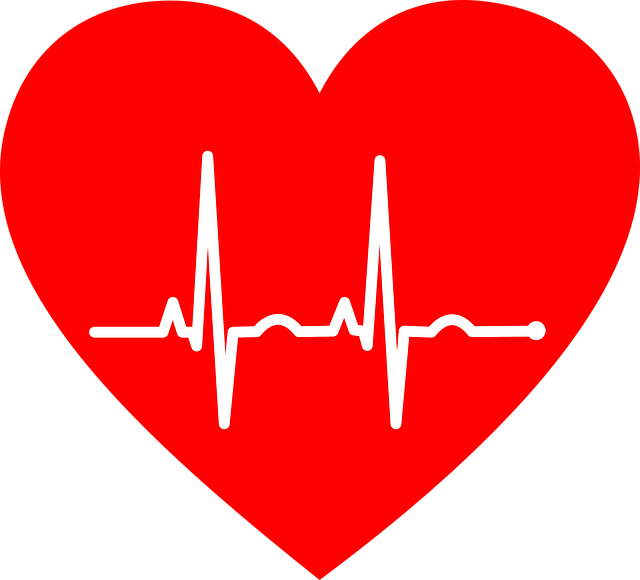CoQ10 for Statins, Heart, Oldies and much more
What is CoQ10
Coenzyme Q10 is a naturally occurring vitamin-like substance that our bodies produce and is found in some foods.

CoQ10 helps to convert food energy into cellular energy to be used for nearly every cell, tissue and organ in the body. A whopping 95% of our cells’ energy is dependent on CoQ10 (27), and accordingly cells with the highest energy demands, such as in the heart, muscle and liver have the highest levels.
As well as producing energy Coenzyme Q10 is an extremely powerful antioxidant which helps to protect body tissues against damage from toxic molecules known as free radicals which are produced as a by-product of energy production (20). As an antioxidant, it rivals vitamins E and C, actually helping to regenerate and recycle vitamin E.
CoQ10 and age
As we get older, we cannot convert CoQ10 as well. This can lead to lower cellular energy and less protection against damage from free radicals. Without enough CoQ10 to power our cells, they become less resilient and more susceptible to damage.
This randomised controlled trial and 12 year follow up of >70 year olds (29) showed an improvement in vitality, physical performance, and quality of life along with a reduction in cardiovascular mortality when supplementing with selenium and coenzyme Q10.

Statins and CoQ10
Statin drugs (prescribed to lower cholesterol) can lower CoQ10 levels by as much as 40% with a reduction in serum and muscle tissue coenzyme Q10 levels which may play a role in statin-induced myopathy (6) (7). CoQ10 supplementation can improve statin‐associated muscle symptoms (5) (8) (16) and supplementation with a high quality brand is usually highly advised by Doctors and pharmacists when taking Statin drugs.

CoQ10 and Heart Health
75% of heart patients have severe deficiencies of CoQ10 in heart tissue compared with healthy individuals (12) so it is not surprisingly CoQ10 is well known for improving cardiovascular health, maintaining healthy heart function and reducing the risk of heart disease. Professor Svend Aage Mortensen, Fellow of the European Society of Cardiology, researcher at the Heart Centre at the University Hospital, Copenhagen, Denmark said when speaking at the Heart Failure 2013 Congress: ‘CoQ10 is the first medication to improve survival in chronic heart failure since ACE inhibitors and beta blockers more than a decade ago and should be added to standard heart failure therapy.’ (18)
Here’s just a few of the many articles published in reputable medical journals on the use of coQ-10 for heart disease:
- heart rate and respiratory rate were significantly lowered, heart ejection fraction increased, walking distance on treadmill increased, distal edema decreased significantly (23)
- 81% patients treated improved while taking CoQ10 (10)
- significantly benefited three-fourths of a group of elderly patients with congestive heart failure. (12)
- halved the risk of major adverse cardiovascular event, halved the risk of dying from all causes. (11) (18) (19)
- All patients improved and 53% became asymptomatic after four weeks. (15)
- The stroke index at rest and work improved significantly, the pulmonary artery pressure at rest and work decreased (significantly at rest), and the pulmonary capillary wedge pressure at rest and work decreased. (13)
- Clinical benefits for 70 percent of the patients having congestive heart failure. (14)
So as you can see, maintaining high CoQ10 levels seems critical to sustaining health, particularly those who who are dealing with cardiovascular issues, are over 40, or taking statin drugs.
I have also provided some Clinical Studies showing CoQ10 benefits patients for:
- depression (1)
- cholesterol (1)
- Parkinson’s disease (1) (8)
- Fibromyalgia (1)
- Migraines (8)
- Conception (1a) (2) (3) (15)
- Breast cancer (28) (24) (25) (26)
- Athletes (4) (8) (17) (21) (22)
Why Supplement?
Although CoQ10 is found mainly in meat, fish, seeds and whole grains, it isn’t enough to significantly increase CoQ10 levels in your body through diet alone, for example just 100g good quality supplement is similar to levels in a kilo of beef, half a kilo of sardines or a kilo of peanuts. (8)
Supplementing with Coq10 has many benefits, with few negative side-effects (8) and as the body will use only what it needs and eliminate the excess, overdosing isn’t a high concern. However it is advised not to take while on blood-thinning drugs such as Wafarin without medical advice due to potential interactions and as I always advise talk to your medical practitioner before starting anything new to check any other contradictions with your specific medications. Because coenzyme Q10 doesn’t cause side effects for most people, your doctor might suggest a trial of it to see if it helps you.
References
1 – https://examine.com/supplements/coenzyme-q10/
1a – https://www.ncbi.nlm.nih.gov/pubmed/19447425
2 – https://www.ncbi.nlm.nih.gov/pubmed/19509475
3 – https://www.ncbi.nlm.nih.gov/pmc/articles/PMC5870379/
4 – https://www.ncbi.nlm.nih.gov/pmc/articles/PMC2315638/
5 – https://www.ahajournals.org/doi/full/10.1161/JAHA.118.009835
6 – https://www.ncbi.nlm.nih.gov/pmc/articles/PMC3096178/
8 – https://www.mayoclinic.org/drugs-supplements-coenzyme-q10/art-20362602
9 – http://www.natap.org/2013/HIV/060513_02.htm
10 – https://www.ncbi.nlm.nih.gov/pmc/articles/PMC5807419/
11 – https://pdfs.semanticscholar.org/3a4c/6e3843bcae2269c92cc97eac369f59c47950.pdf
13 – https://www.ncbi.nlm.nih.gov/pubmed/10416042
14 – Healing with Vitamins: Straight from Nature, Backed by Science
15 – Textbook of Natural Medicine – E-Book
16 – https://www.ncbi.nlm.nih.gov/pmc/articles/PMC4226312/?tool=pmcentrez
17 – https://www.science.gov/topicpages/c/coenzyme+q10+supplementation.html
19 – http://www.q-symbio.com/what-is-q-symbio
20 – https://www.ncbi.nlm.nih.gov/pmc/articles/PMC5807419/
21 – https://www.ncbi.nlm.nih.gov/pubmed/18284711
22 – https://www.ncbi.nlm.nih.gov/pubmed/21180141
23 https://www.ncbi.nlm.nih.gov/pubmed/20657530
26 https://www.ncbi.nlm.nih.gov/pubmed/7908519://www.ncbi.nlm.nih.gov/pubmed/19447425
27 https://www.quicksilverscientific.com/blog/coq10-one-solution-for-all-seasons/ https://foreveryoung.perriconemd.com/what-is-coq10.html
28 http://www.q10facts.com/more-about-coenzyme-q10-and-breast-cancer/
29 https://pubmed.ncbi.nlm.nih.gov/26482687/ 12 year follow up – https://pubmed.ncbi.nlm.nih.gov/29641571/
